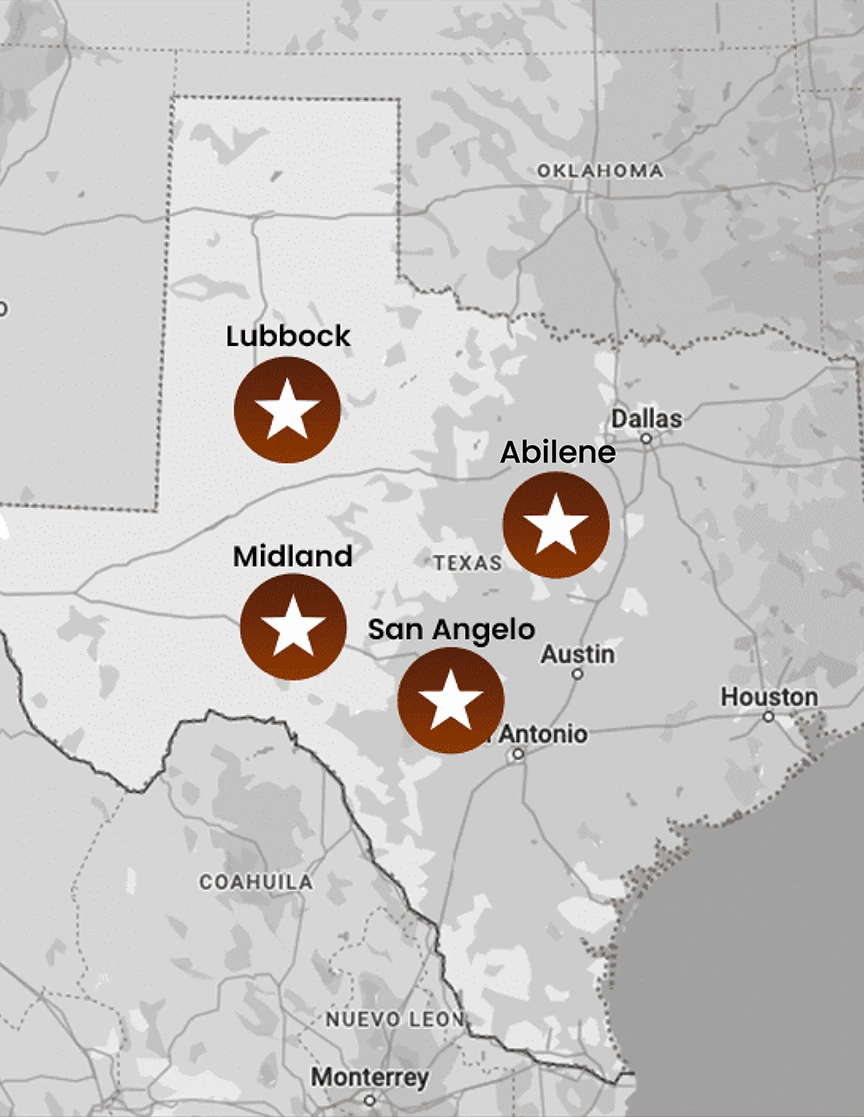
In Texas, the amount someone can sue for a car accident varies depending on several factors, including the severity of injuries, property damage, and liability.
Victims may claim damages for medical expenses, lost wages, and pain and suffering, potentially resulting in significant compensation if negligence is proven.
Each case is unique. Factors such as insurance coverage limits, the extent of injuries, and evidence of fault determine the potential payout.
But Russell Lorfing and his team have put this guide together to help you determine how much you could be entitled to.
What are the factors that influence compensation amounts?
When assessing compensation amounts in car accident cases, many factors come into play.
The following table provides a detailed overview of these factors, outlining how they can impact the overall compensation in a car accident claim. Each variable plays a role in determining the final amount awarded to victims.
| Factor | Example | Potential Payout Range |
|---|---|---|
| Degree of Fault | If the driver was speeding during the crash | May have reduced compensation for shared liability |
| Non-Economic Damages | Pain and emotional distress from the accident | Typically ranges from $15K-$100K depending on severity |
| Property Damage | Damage to the car and personal belongings | $2K-$50K based on repair costs and value lost |
| Minor to Moderate Injuries | Whiplash or minor fractures | $1K-$10K based on treatment and recovery time |
| Catastrophic Injuries | Life-altering conditions or permanent disabilities | Over $100K, factoring in long-term care and lost earning capacity |
| Wrongful Death | Death caused by the accident | Potentially millions of dollars in compensation, covering funeral expenses, lost income, and companionship |
In most cases, the severity of injuries and property damage will have the most significant impact on potential compensation amounts. More serious injuries or damages will generally result in higher payouts.
Additionally, the degree of fault and insurance coverage limits can also significantly impact the final amount awarded to victims.
For example, if the at-fault driver’s insurance policy has a limit of $50,000 and the victim’s medical expenses exceed that amount, they may have to file a personal injury lawsuit to seek additional compensation.
For more guidance on how much you can sue for, find out how an Abilene car accident lawyer from our personal injury law firm can help
Types of damages: what can you sue for in a car accident
Each category of damages encompasses different aspects of the victim’s experience and seeks to address both tangible and intangible loss.
Below are the most common types of damages that someone can sue for in a car accident:
Economic Damages
Economic damages refer to the quantifiable financial losses a victim suffers as a result of a car accident. This can include:
- Medical expenses
- Rehabilitation costs
- Lost wages due to inability to work
- Costs for damage to personal property
Victims can provide evidence of these expenses through medical bills, pay stubs, and repair estimates, making them relatively straightforward to calculate. The aim of economic damages is to reimburse victims for their direct financial impacts stemming from the accident, ensuring they are made whole again.
Additional Reading : can you sue someone for a hit and run in Texas?
Non-Economic Damages
Non-economic damages cover the subjective, non-monetary impacts of an accident, such as:
- Pain and suffering
- Emotional distress
- Loss of enjoyment of life
These damages are more challenging to quantify as they pertain to individual experiences and suffering.
Courts often consider factors such as the severity of injuries, duration of pain, and the overall effect on the victim’s day-to-day life when determining non-economic damages.
Though harder to prove, they represent an essential aspect of a victim’s recovery, providing relief for the emotional and psychological toll of the accident.
Punitive Damages
Punitive damages are designed not to compensate the victim directly but rather to punish the at-fault party for particularly negligent or reckless behavior that led to the accident. These damages serve to deter similar conduct in the future and are awarded at the discretion of the court.
In Texas, punitive damages may be sought when the at-fault party demonstrated gross negligence or intentional misconduct. Though rare, these damage claims serve to highlight the severity of the at-fault party’s actions and reflect the legal system’s stance on such behavior.
Who gets sued in a car accident
In a car accident case, determining who can be sued hinges on establishing fault and negligence.
Typically, the at-fault driver is the primary party pursued for compensation, as their actions directly caused the accident and consequent damages. However, other entities may also be held liable depending on the circumstances surrounding the incident.
For instance, if the driver was operating a vehicle owned by someone else, the vehicle’s owner could also be named in the lawsuit.
Furthermore, if the accident resulted from a mechanical failure, the manufacturer of the vehicle or the company responsible for its maintenance may be implicated.
In some cases, employers could be held liable if the accident occurred while an employee was performing job-related duties.
The role of comparative negligence in Texas
Texas follows the modified comparative negligence rule, specifically the 51% bar rule. Here’s what that means:
How It Works: Under this rule, you can recover damages from another party as long as you are not more than 50% at fault for the accident. However, your compensation will be reduced by your percentage of fault.
For example, if you are found to be 30% at fault for an accident and your total damages are $10,000, your compensation would be reduced by 30%, meaning you would receive $7,000.
51% Bar Rule: If you are found to be 51% or more at fault, you are barred from recovering any damages from the other party. Essentially, you must be 50% or less at fault to be eligible for compensation.
This system is designed to ensure that parties who are primarily responsible for an accident are not able to recover damages, while still allowing for partial recovery if both parties share some degree of fault.
To understand more about the amount of compensation you may be entitled to, a Lubbock car accident lawyer is on hand to support you.
Factoring in insurance laws
In The Lone Star State, drivers are required to carry a minimum amount of liability insurance coverage to cover damages in the event of an accident. This means that, at the very least, victims can seek compensation from the at-fault driver’s insurance provider.
The minimum insurance policy limits for auto liability insurance, also known as 30/60/25 coverage, are as follows:
- $30,000 for bodily injury liability per person injured in an accident.
- $60,000 for bodily injury liability per accident (regardless of the number of people injured).
- $25,000 for property damage liability per accident.
Uninsured/underinsured motorist (UM/UIM) coverage
- Uninsured Motorist Coverage (UM): Protects you if you’re involved in an accident with a driver who does not have any insurance. It covers medical expenses, lost wages, pain and suffering, and other related costs.
- Underinsured Motorist Coverage (UIM): Kicks in when you’re involved in an accident with a driver whose insurance policy limits are too low to cover all your damages. It fills the gap between the at-fault driver’s insurance limits and the actual costs of your injuries or damages.
- Minimum Limits: Typically, the limits for UM/UIM coverage mirror your liability coverage limits, so the minimum would be $30,000 per person and $60,000 per accident for bodily injury, and $25,000 for property damage, unless you choose to decline or select different limits.
Personal injury protection (PIP)
- Coverage: PIP covers medical expenses, lost wages, and other related costs for you and your passengers, regardless of who was at fault in the accident. PIP is broader than MedPay (Medical Payments coverage) because it can also cover non-medical costs such as lost income and the cost of hiring a caregiver if you’re unable to perform household tasks due to injuries.
- Minimum Limits: In Texas, insurers are required to offer a minimum of $2,500 in PIP coverage, but policyholders can choose to increase this limit or reject the coverage in writing.
Additional reading: average whiplash settlement in Texas
The process for suing someone
If you’re considering legal action following a car accident, a good understanding of the process can help you prepare and make informed decisions.
Here’s a short outline of the key steps to follow:
- Gather Evidence: Collect all relevant information, including police reports, medical records, and witness statements.
- Consult an Attorney: Seek legal advice from a personal injury attorney from our firm to evaluate your case and guide you through the process.
- Send a Demand Letter: Draft a demand letter outlining your claim and the compensation sought, sending it to the at-fault party’s insurance.
- Negotiate Settlement: Engage in negotiations with the insurance company, aiming for a fair settlement that covers your damages. Your personal injury lawyer will handle this for you.
- File a Lawsuit: If a settlement cannot be reached, your car accident lawyer can help you file a formal lawsuit in the appropriate court.
- Discovery Phase: Participate in the discovery process where both parties exchange information and evidence.
- Trial Preparation: Prepare for trial, including gathering additional evidence and witness testimonies to support your case.
- Trial: Present your case in court, where a judge or jury will determine the outcome and compensation, if applicable.

Need expert legal advice in TX?
If you have been involved in a car accident in Texas and are seeking legal guidance, look no further than Keith & Lorfing! Our dedicated team of personal injury attorneys is committed to helping you navigate the complexities of your case and ensuring that you receive the compensation you deserve.
We understand the challenges that accident victims face, from medical expenses to emotional distress, and we are here to support you at every step. Let Keith & Lorfing fight for your rights and help you reclaim your peace of mind.
Don’t let the daunting legal process overwhelm you — contact us for a free consultation today!
Final points
While car accidents can be traumatic and overwhelming, a good understanding of the various factors that come into play when seeking compensation can make a significant difference.
Be sure to review and understand your insurance policies, including UIM and UM coverage, and seek legal advice if needed.
Remember, you have the right to fair compensation for damages caused by someone else’s negligent actions — don’t hesitate to take action and protect your rights.
FAQs
How long does it take to settle a car accident lawsuit?
The time to settle a car accident lawsuit varies widely, typically ranging from a few months to several years. Factors affecting this duration include the complexity of the case, the willingness of parties to negotiate, and court schedules. An experienced attorney can provide an accurate estimate based on your situation.
Will my car accident case go to trial?
Very few car accident cases actually go to trial. The majority of them are settled through negotiations well before reaching court. However, if a fair settlement cannot be achieved, your case may proceed to trial, where a judge or jury will decide the outcome and compensation.
How soon after a car accident should I consult an attorney?
It’s advisable to consult a personal injury attorney as soon as possible after a car accident, ideally within a few days. Early legal guidance can help protect your legal rights, ensure that important evidence is properly preserved, and facilitate the claims process for maximum compensation.
What does it cost to hire a car accident attorney?
Most personal injury attorneys, including us here at Keith & Lorfing, operate on a contingency fee basis, meaning they only get paid if you win your case. Typically, this fee ranges from 25% to 40% of the settlement amount. Initial consultation will typically be free, during which you can discuss fees and payment terms with your attorney.



